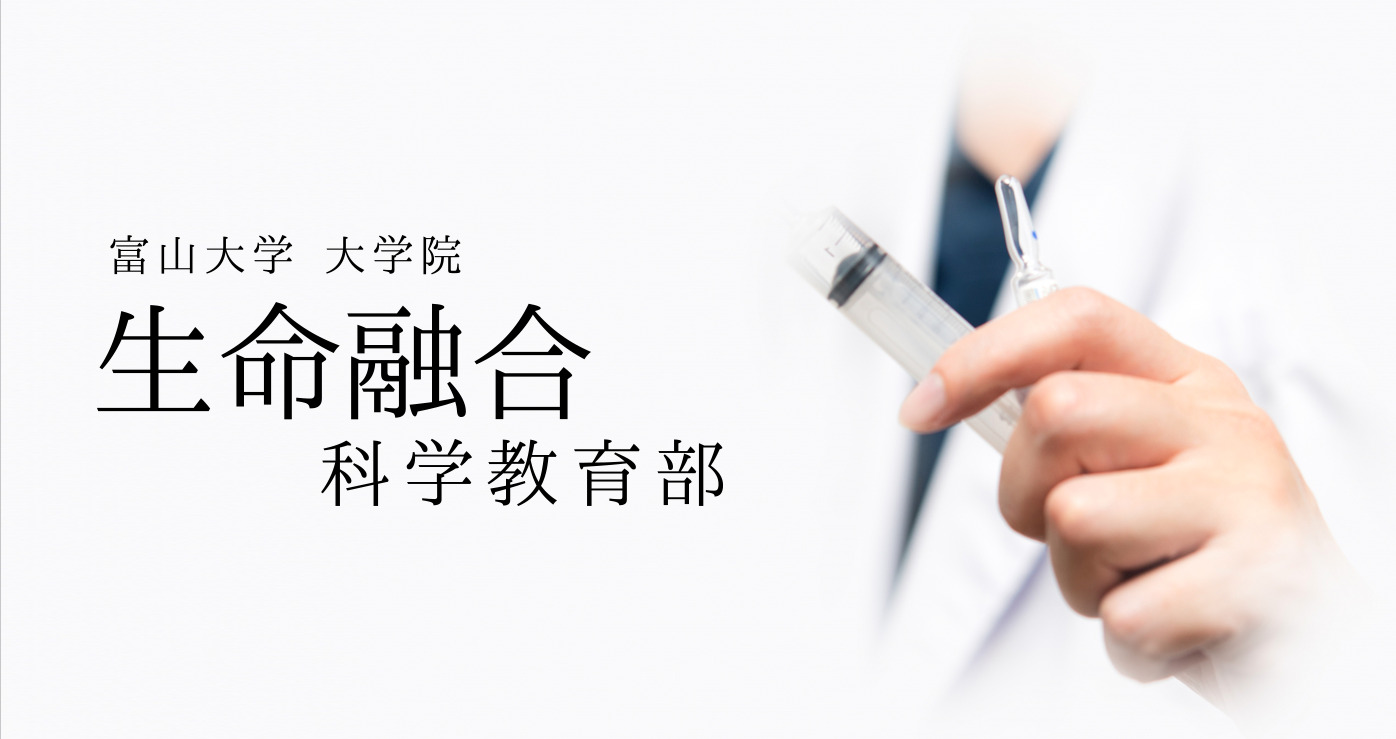Outlines of Majors
To clarify the mechanisms of biological systems in the “post-genome age,” the need for multilateral observation and understanding of concurrently ongoing phenomena in living organisms has been increasing. In addition, the development of a methodology to obtain, analyze, and understand an enormous amount of information efficiently is required even in future standard medical care system represented by gene diagnosis and personalized medicine. Moreover, in accordance with the rapid development of life science, development is sought of a new biological system science, intellectual information engineering, and medical engineering, which will enable a rapid response to aging welfare societies and health enhancement societies. Under these circumstances, this department is to cultivate leading life scientists who will research and reveal the processes and mechanisms of complicated life phenomena, which keep changing, and unresolved gene information and its expression/regulation mechanisms mainly at the level from molecules and cells to tissues. Furthermore, based on the latest findings on microbiological information-processing mechanisms, leading researchers and advanced engineers who can design and develop devices for body function measurement, medical measurement, and environmental measurement, as well as advanced engineers and pharmacists who can understand and use advanced medical devices and leading-edge information engineering are to be cultivated. We also aim to develop human resources who acquire recent findings and cross-sectoral analysis methods on the brain nerve network as a biological information system in collaboration with departments of cognitive and emotional neuroscience and who contribute to the design and development of next-generation intellectual information engineering, brain-type computers, and human interfaces. In this department, we resolve the biological information system at such micro levels in collaboration with staff in medical (concurrent) departments, pharmacological departments, biological departments, bioengineering departments, and information engineering departments.
List of Class Subjects
| 教育分野 | 指導教員 | 研究内容 |
|---|---|---|
| Structural Biology |
Professor MIZUGUCHI MineyukiProfile |
We determine protein conformation by NMR to analyze functions and conduct researches on the relation between changes in protein structures and diseases by examination of abnormal structures such as amyloid fibril. |
| Molecular Genetics | Professor TABUCHI Yoshiaki Profile |
|
| Consilienceology for Wakan-yaku | Associate Professor TOHDA Michihisa Profile | The following studies based on the classical scientific theory systems for Wakan-yaku and Kampo medicine; [Targetted diseases] functional mental diseases (depression, schizophrenia, developmental disability), heart failure; [Academic bases for studies] Jin Gui Yao Lue, the traditional Japanese medicine, the traditional medicine originated in China, physiology, biochemistry and pharmacology; [Strategy and purpose] 1) Diagnosis for functional mental diseases based on the Wakan-yaku response (=Sho), clarification of the molecular mechanisms for diseases, and development of novel Wakan-yaku prescriptions. 2) development of novel Wakan-yaku prescriptions to prevent lethal recurrence of heart failure |
| Biological Information Engineering | Professor KUROSAWA Nobuyuki Profile |
We will conduct research on molecules involved in human diseases and also try to develop monoclonal antibodies for deagnostic and therapeutic purpose. |
| Chronobiology | Professor IKEDA Masayuki |
Our laboratory has developed an innovative high-throughput antibody acquisition technology, which combines automation and miniaturization. Based on this technology, we aim to develop monoclonal antibodies for tailor-made medicine, diagnosis, and reagents for research through joint research with industry, academia and government, as well as through licensing out the technology to pharmaceutical and diagnostic companies. |
| Bioelectronics | Professor SHINOHARA Hiroaki Profile * | We provide education and conduct researches concerning the design of interfaces that connect biological systems and electronic systems, including synthesis of artificial bio molecules with information transduction function systems, design/development of sensitive and rapid biosensing systems with the use of new measurement devices, and design/development of bioelectronics systems comprising modified biological molecules and cells and electronic devices in combination. |
| Biosensing Engineering | Professor SUZUKI Masayasu Profile | We focus on miniaturization and integration of biosensors. We are developing immunosensors and enzyme sensors for clinical diagnosis, bioscience and environmental science. Especially, the biosensing technology for single cell analysis is our recent major target. |
| Brain and Neural System Emgineering | Professor KAWAHARA Shigenori Profile | By using a relatively simple associative learning task, eyeblink conditioning, we conduct researches on cross-domain interaction in the brain and the hierarchical regulation mechanism from the viewpoint of system theory. |
| Tissue and Organ Engineering | Professor NAKAMURA Makoto Profile * | We are aiming at creating new age, by developing innovative principles and next generation technologies in tissue/organ engineering and regenerative medicine. To make this come true, it is required to develop multi-scale, multi-phase and multi-diciplinary technologies including bio-materials, biofabrication, bio-processing and related medical technologies from research to clinical therapies. And industrialization is also indispensable. We are going to adovance towards the realization of this concept steadily. |
| Comparative Neuroendocrinology | Professor MATSUDA Kouhei Profile | The aims of my research are to understand the evolutionary background of the neuropeptide-regulated system of feeding and emotional behaviors in lower vertebrates. |
| Pharmacology | Associate ProfessorTAKASAKI Ichiro Profile | Our subjects of research are “pain” and “itch,” especially chronic pain and itch such as neuropathic pain and atopic dermatitis. Our aims are to clarify the mechanisms in which the pain or itch becomes chronic and to develop a new drug for the pain and itch. |
Teacher with asterisku mark(*) are scheduled to retire in March 2024

